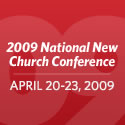Ten Reasons Your Volunteers Quit
Orginally published on Thursday, April 13, 2006 at 6:29 AM
by Todd Rhoades
 Why do some people come back day after day to serve, while others try it once and never return? According to volunteerism expert Dr. Don Simmons, "We don't have a recruitment issue with volunteers. We have a retention issue."
Why do some people come back day after day to serve, while others try it once and never return? According to volunteerism expert Dr. Don Simmons, "We don't have a recruitment issue with volunteers. We have a retention issue."
Simmons gives his Top 10 reasons volunteers quit or fail to perform their services:
1. A sense that their service is not valuable.
2. A sense that they do not matter as a person, only as a "worker."
3. A sense that their contribution is not as valid as others.
4. A lack of community.
5. A lack of connection with a bigger purpose.
6. Poor leadership and management.
7. Poor communication/direction.
8. Lack of appreciation.
9. Failure to recognize them as a donor.
10. Lack of development of them as a person.
Giving volunteers the information, tools and resources they need shows dignity and trust. But volunteerism is not all work and no play. "Give people a nurturing support system, a sense of community and fun," Simmons adds.
[This article is from Leadership Network's Advance email newsletter. Each month they have great leadership tips and articles. You can get your free subscription here. This particular information comes from an article written by Krista Petty. You can read the whole article here.]
FOR DISCUSSION: Which has been a bigger problem for you: signing up volunteers or retaining volunteers?
![]()
This post has been viewed 1954 times so far.
TRACKBACKS: (0)
There are 13 Comments:

Hi... I'm Todd Rhoades. I'm a Christ-follower, husband, father and I love to connect leaders with other leaders. Hopefully you'll find something here at MMI you like and will return often. If you want, you can find out more about me or follow my every step on Twitter.
![]()







-
Posted by
Thursday, April 13, 2006 at 7:58 AM
-
Posted by
Thursday, April 13, 2006 at 9:47 AM
-
Posted by
Thursday, April 13, 2006 at 10:21 AM
-
Posted by
Thursday, April 13, 2006 at 10:29 AM
-
Posted by
Thursday, April 13, 2006 at 10:31 AM
-
Posted by
Thursday, April 13, 2006 at 10:39 AM
-
Posted by
Thursday, April 13, 2006 at 10:40 AM
-
Posted by
Thursday, April 13, 2006 at 11:34 AM
-
Posted by
Thursday, April 13, 2006 at 11:40 AM
-
Posted by
Thursday, April 13, 2006 at 12:25 PM
-
Posted by
Thursday, April 13, 2006 at 1:51 PM
-
Posted by
Thursday, April 13, 2006 at 2:09 PM
-
Posted by
Thursday, April 13, 2006 at 8:47 PM
Post Your Comments:I got another coupla reasons.
Sometimes they step back because their lives change and they just don’t “have the time” any more.
Sometimes they step back because we over-commit them beyond what we should have. (perhaps that’s part of poor leadership and poor management.)
Which has been a bigger problem for you: signing up volunteers or retaining volunteers?
In truth, this depends upon which particular ministry site is in question. I’ll use up and down in the following examples.
Up – Volunteers are quite often hard to come by. Why? Many who are involved are retired and therefore, think this should include any real perceived church work. Thankfully, there is fresh movement happening and this is slowly beginning to change. Thank you oh Lord! The faithful few who have been volunteering all along are either taking a much needed break to be renewed and refreshed or are being so energized by seeing God at work that they cannot help but come along side of the new recruits. What’s really great is seeing some of the older generation embracing the younger ones even though they are stretching beyond their comfort zones to do so. Seeing that the older generations do not want to run them off has given a new appreciation and respect from the younger. Back in the fall was a great picture of this… “M” was having a Habitat for Humanity home built. I requested volunteers from up. Side by side was old and young laying grass, painting, or whatever seemingly menial tasks that needed to be done. This single mom and her two young children are still being reached out to because individuals could see the real difference their involvement had.
Down – Volunteers come from all areas of the community. In recent days, several of our volunteers are those very participants who experienced life changing results and cannot wait to share God’s love with others however they possible can. If this means answering phones; they answer. If it requires serving meals that they have prepared; they prepare, serve, and clean-up afterwards. If it is giving testimony of how God used this ministry to change their lives; they testify often with tears streaming down their faces. Yes. Sometimes it is difficult to get volunteers who are willing to be mentors for the participants because of the perceived dangers involved. For those who do actually seek God first and then commit, often they realize the real danger was just in how much their own lives would be forever changed. You know the old, “I’m going to teach them about life but they can teach me nothing.” Case in point… Before I signed on with this ministry as a member of the staff, I was a mentor. At the time I had long hair that I often kept pulled up in a hair clip. “P” flat-out told me one day what she perceived about me because of my hair. I had no clue that wearing my hair up like that made me look like I was unapproachable. Given “P’s” history, I can see why she truly wanted to run from me instead of embracing me and any guidance in her life. Oh how God used her to teach me so much and still is as she is now one of my dearest friends. “P” is now a volunteer and has a great impact on the new participants.
It is my continual hope and prayer that up and down will come to see that they are truly a part of the same community/body. If God can accept someone from up; He can just as easily accept from down. That’s how great our God is!
Okay. I realize I might not have stayed exactly on topic here. But hopefully someone got something out of that they can find helpful.
Wow! A top ten that I finally agree with. And I was always told it was just a lack of commitment and a measuring rod for the spiritual condition of people in the church (sarcasm intended).
Good tips.
Ed.
I think #10 is huge (Lack of development of them as a person). People that do jump in and get involved want some connection with other, hopefully more spiritually mature leaders. When they don’t get that, much less specific direction in the job that they’re supposed to do, it can be discouraging. But I also agree with Peter Hamm that lack of time and too much busyness is a huge factor. So if people do volunteer, they have to feel that it is something worth sacrificing their valuable time for. (Note to Todd: keep the time management posts coming!)
Excellent post, Todd. In regards to #’s 5-7, I would like to mention that maybe it’s just me, but trying to get volunteers to see the bigger picture is not always easy; they’ve been doing their ministry for years this way, and now we tweak it to become more effective and all they see is their turf being invaded. Efforts to communicate fall on deaf ears because once they perceive “Change”, they are threatened. Are we changing because I’ve been doing it wrong all this time? No, but it’s hard to get that out of their head. And in our case, it’s the younger ones who have more trouble dealing with change than the older ones.
Poor communication on our part? Sure, but in going so far as to even draw them a picture (literally) of where we’re going, it still meets resistance. When the big picture no longer fits on their agenda, we’ll lose them.
We just left a church where plenty of people (gifted people) wanted to volunteer their time and talents to the efforts of the church and stepped forward plenty of times to do so. The problem we faced was a pastor who was seemingly unwilling to let anyone else do anything else and eventually people get frustrated and leave. I guess this would fall under poor leadership and possibly an issue with control. If you can’t allow people to operate in their gifts then they will leave and go somewhere where they feel needed. After 2 years of being the worship leaders at this same church we left for the same reasons… a complete lack of leadership.
There is a lot more “meat” in each of these ten items that the article is able to communicate. I think a theme (which I completely agree with) is that people quite (retention) or don’t sign up because we (the leadership) has a problem. However, we’ve tended to point our fingers our lazy, self-indulgent congregations as the reason for poor volunteerism rather than looking in the mirror.
Most of the items on the list have to do with discipleship. Our structures however tend to make discipleship into a program that people go to (even classes and small groups). So as a result, they overfill their plates. They have to be in one type of activity to serve and use their gifts and another to grow and become discipled.
What if these were one and the same? What if I could build community, learn about the bible, gain spiritual maturity as part of my serving. If the nursery leader understood his/her role as a discipler of nursery workers rather than just filling the nursery slots and teaching workers how to care for babies. If the lead usher saw his ushers as a small group and besides “ushing” together, they also had dinner at one another’s house and studied the bible together.
Isn’t that how Jesus did it with 12 rag-tag guys?
Wendi
Wendi, the model you suggest for discipleship is a good one, but I’ve seen it tried at our church with limited success. I’d be interested to hear if you’ve had the same or similar problems, and what you did to correct it. For example, the ushers are told to form into a small group, but they don’t have a natural affinity for each other that those in a small group might, and so the “discipling” falls off. Or I’ve personally lead a service group, attempted to do the small group portion, and the people were more interested in just getting to the nuts and bolts portion of serving, again, because that natural bond/affinity wasn’t there. Do you have suggestions for how those hurdles can be overcome?
Both are intimately connected. I used to have the phillosophy that if people area serving in their passion area and where God has called them, then they will just go on forever. NOT!
A great resource that I have implemented into my equipping is “Grow Minister and Lead” (ten lifelines for volunteer leaders in the local church)…
It helped to open my eyes to being intentional with my volunteers about
1. providing for their own personal (spiritual) growth… we do not let people teach during Sundays and Wednesdays… they need to be fellowshipping and getting fed themselves too!
2. Accountability (for #1 and for their ministrty responsibilities)
3. Time management (nuf said)
4. Effective volunteer meetings and
5. Doing ONGOING training and ENCOURAGEMENT
There is a ton of great LEADERSHIP resource material available. This is one I found revolutionary.
Oh yeah, God’s timing?
Check out the resource of the day at the bottom left corner of the http://www.cadreministries.com website… it’s called “Recruiting, Motivating and Retaining Volunteers”
I love this job!
Nora,
You are quite right about members of serving teams sometimes not being all that interested in doing much more than the task at hand. I think part of this stems from the way we (leaders) have created the culture. Ministry is about getting stuff done or performing a task, Spiritual Formation programming takes care of our souls.
Plus, as you wisely pointed out, sometimes these more intimate relationships need to grow more naturally and organically as people find their way to one another.
One way I’ve addressed the need for discipleship on serving teams is to look at it on a case-by-case basis. I once led a team of people who followed up with visitors and worked on their own from home. Creating team and discipleship among members was challenging cause we didn’t do our work together. I can think of two things in particular which I did:
1. I made sure meetings had less business and more relationship (and it meant I had to communicate business stuff in other ways).
2. I focused on those team members who did not have other activities where they were developing community and having their soul fed. In other words, I didn’t really about those folks who were active in a small group or other Bible study. For some, this group represented the only thing they did outside of worship services, so I made sure to invest in these folks in groups of two or three over coffee or lunch. It prevented us from forcing discipleship into the lives of those getting it in other ways and their resistance causing the whole ministry team discipleship process to misfire.
Does that make sense?
Wendi
[For some, this group represented the only thing they did outside of worship services, so I made sure to invest in these folks in groups of two or three over coffee or lunch. It prevented us from forcing discipleship into the lives of those getting it in other ways and their resistance causing the whole ministry team discipleship process to misfire.]
Wendi, HUGE issue, GREAT idea. I know that all except one of my group at the time was involved in a small group (most were actually leaders), and to feel like we had to relate to each other in that way felt redundant. But I love the idea of focusing on the ones who are not that involved. Thanks for the tips!
Nora
Nora –
Here are a few more thoughts about discipleship and community through serving.
I know of some churches that have had good success trying to create some ministry opportunities designed for already existing groups. These include hospitality (parking, ushering, welcome ministries like the coffee and muffin area described on another article this week) or nursery and children. These ministries are staffed by small groups and fellowship groups that rotate, taking one Sunday per month or quarter. This way, instead of trying to force volunteer teams into relationships, already existing relationships are maximized.
Some argue that this prevents people from serving in an area of gifting and passion. I disagree for several reasons. Doing something I’m naturally good at with people I don’t know is not nearly as fulfilling as doing something I can be relatively good at with people I love and have fun with. Plus, I think it’s a misnomer that every single job in the church must be filled with a person who perfectly matches. More often, when people with different gift-mixes fill the same role it takes on the shape of the person filling it. An usher need not have hospitality gifts. One of our best ushers has shepherding gifts. He knows the names of the people who sit in his section, who their kids are, where they like to sit, when they’ve been missing.
My opinion is that we retain volunteers better by finding ways for them to serve with friends (new or old friends) than by trying to perfectly match people who have no natural affinity with one another.
Wendi
Page 1 of 1 pages